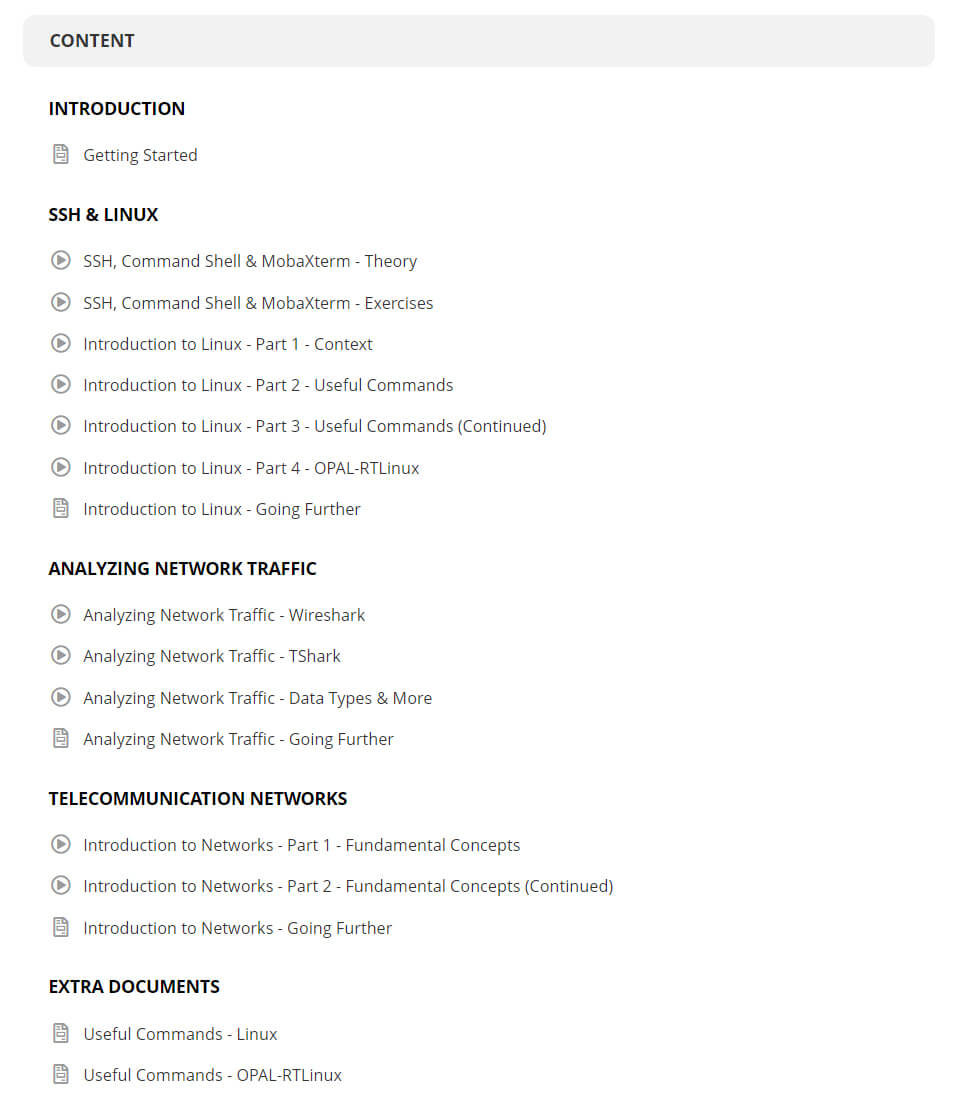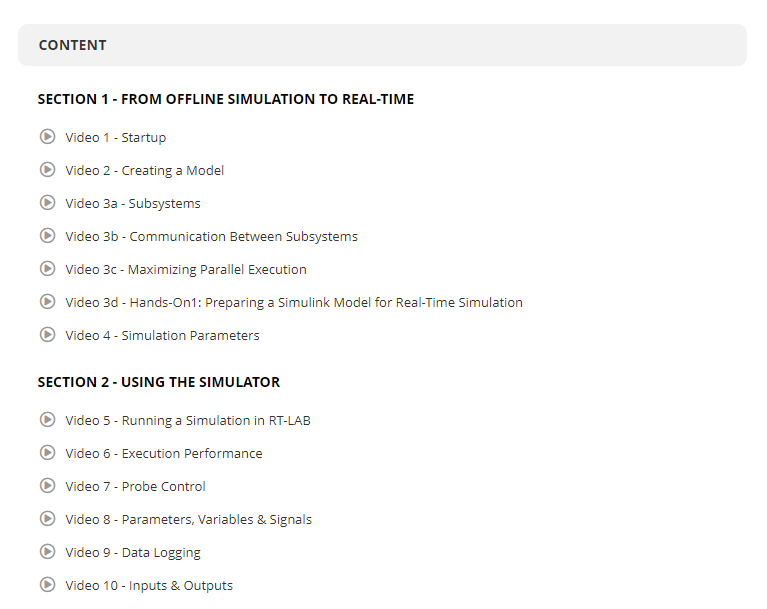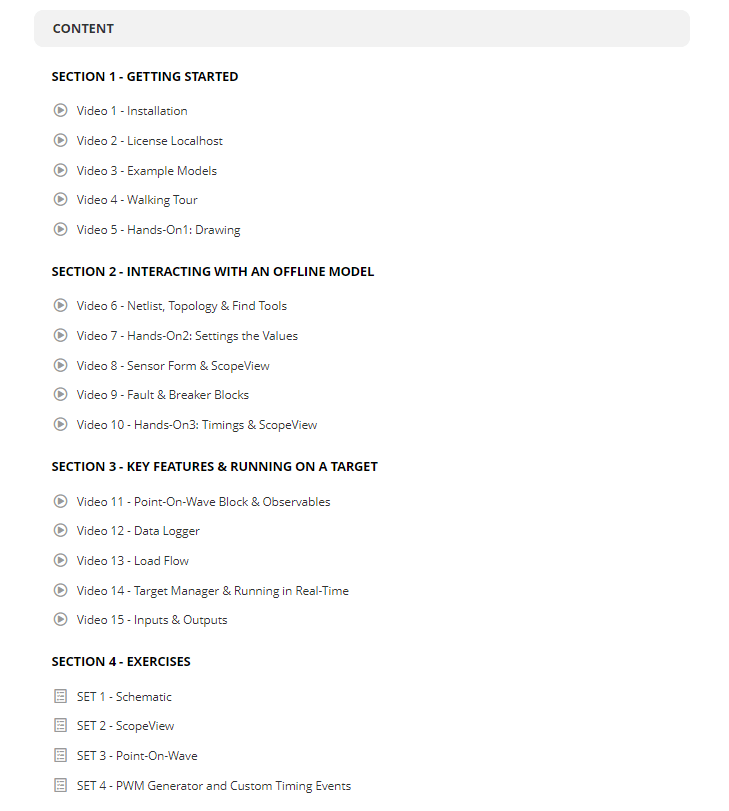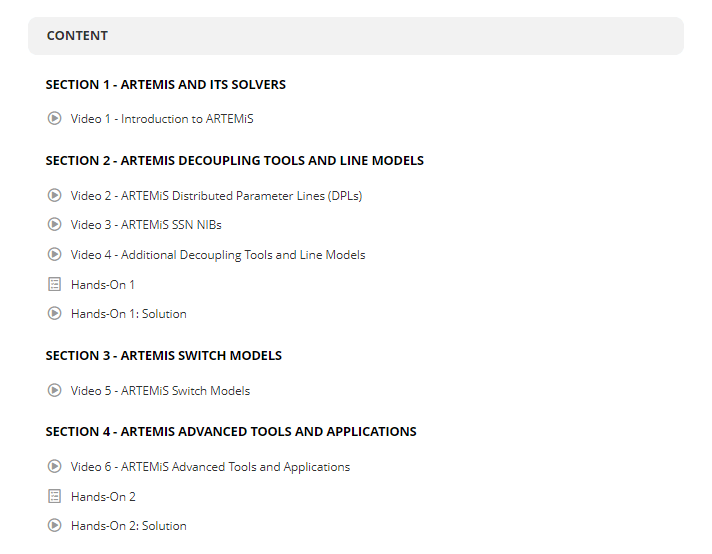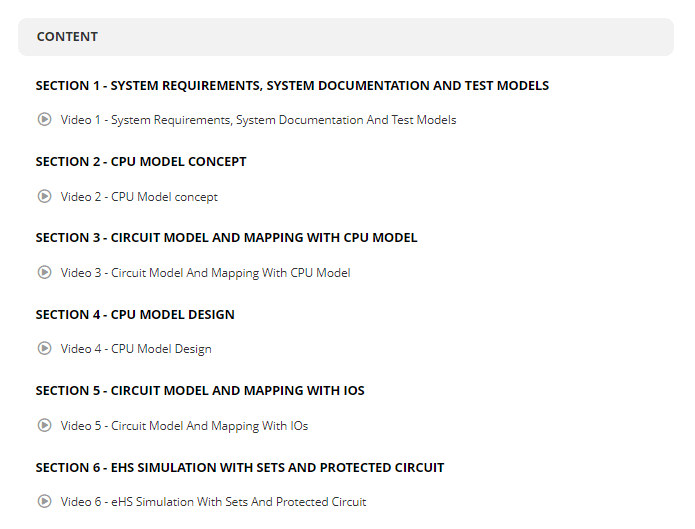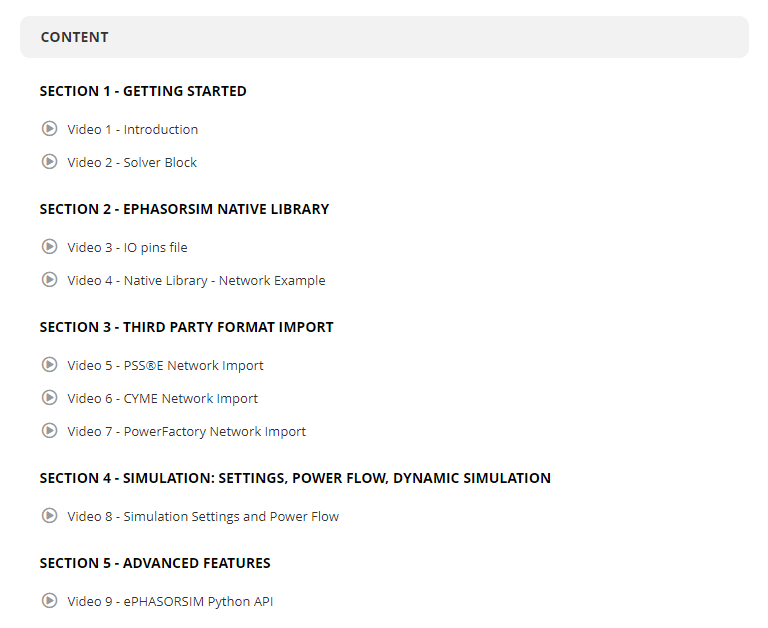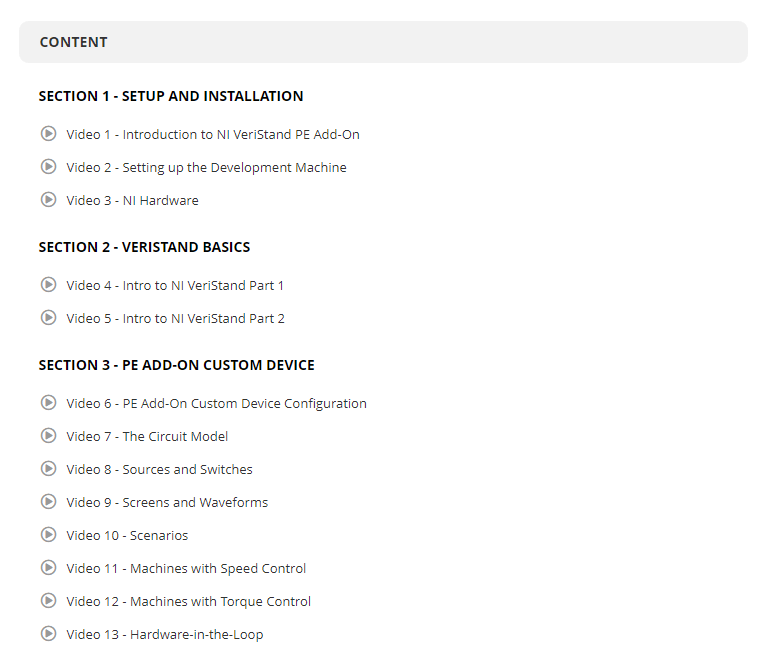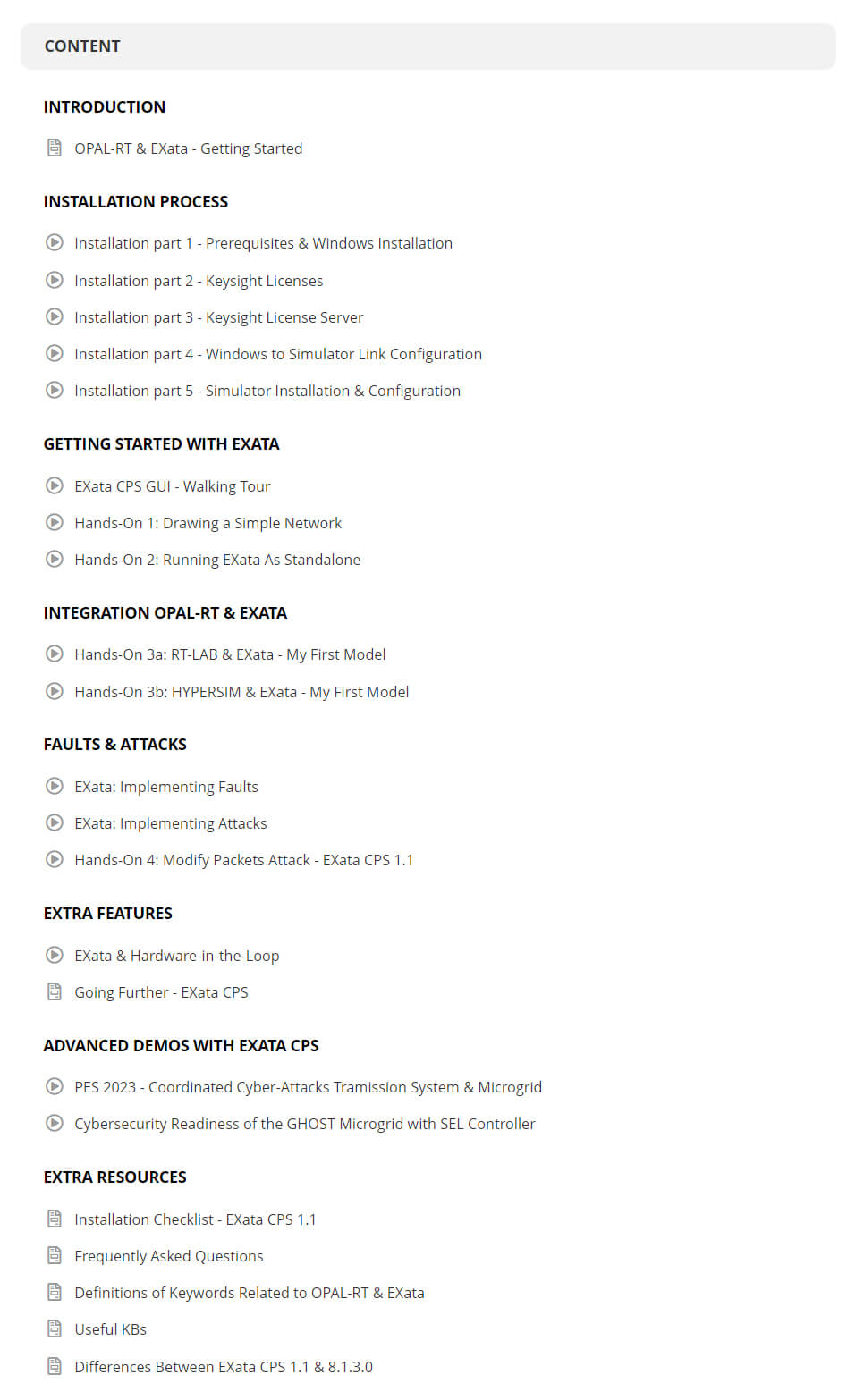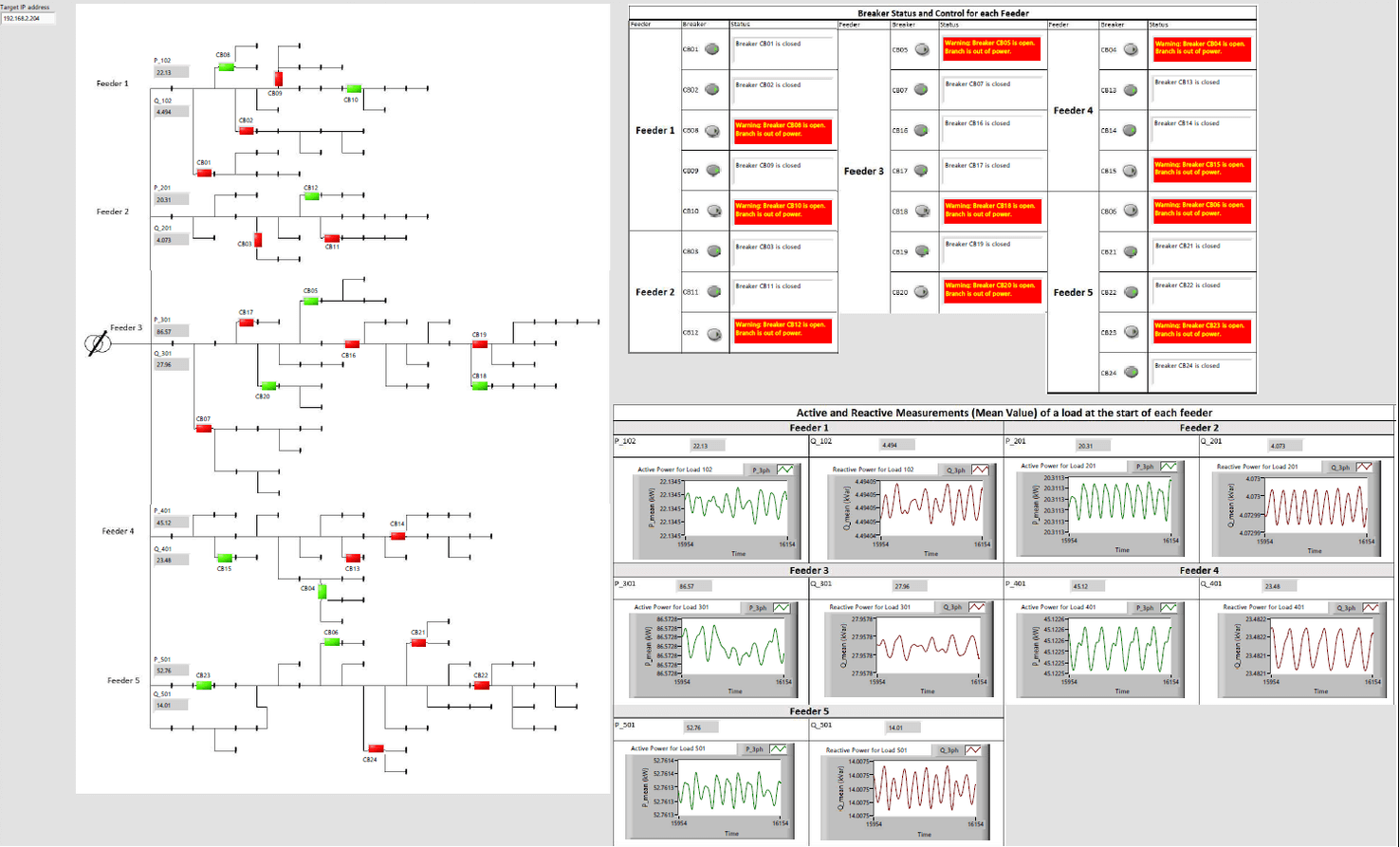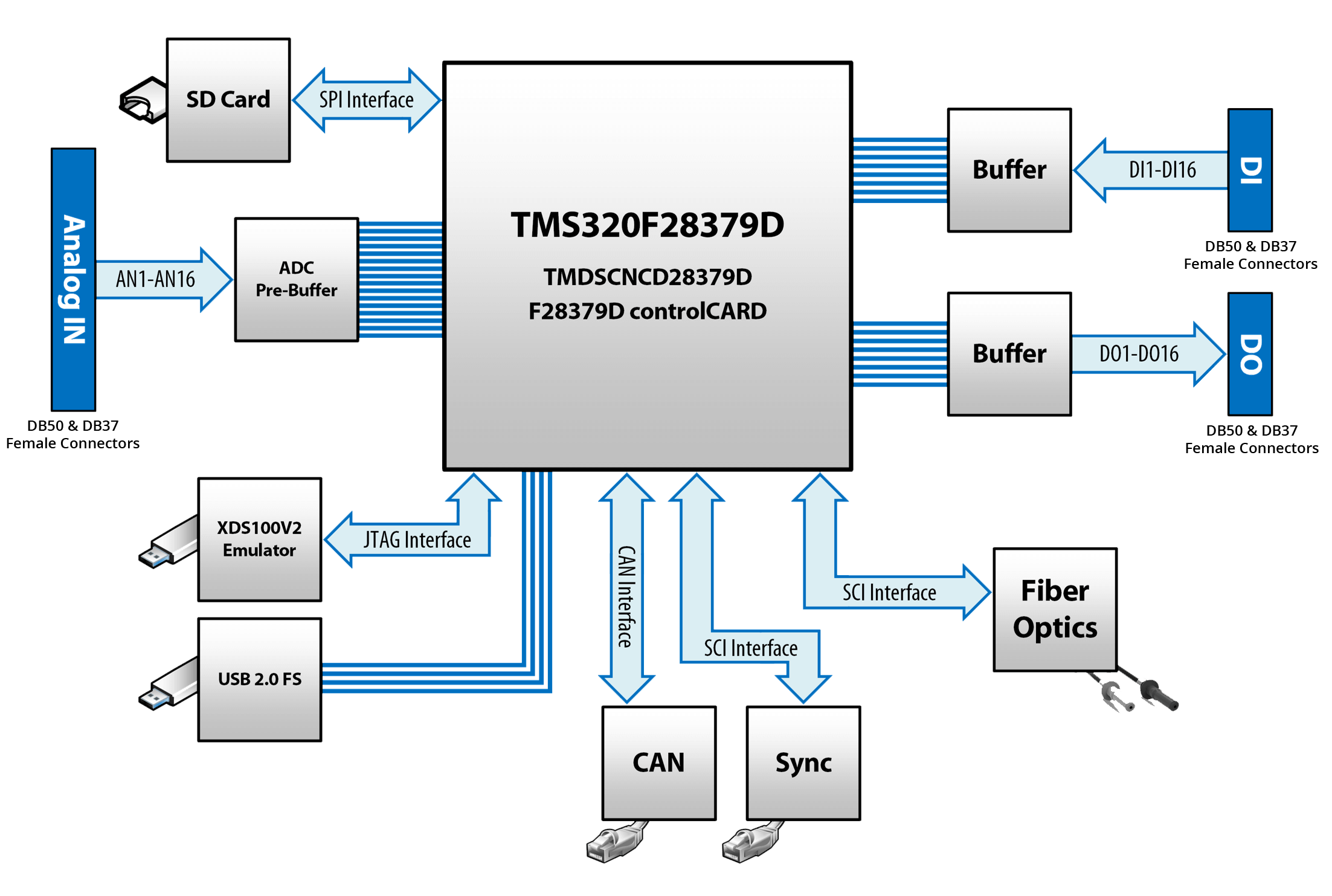Accurate and Precise Electric Machine Real-Time Simulation
The successful and reliable implementation of Hardware-in-the-Loop for power electronics applications requires sound models, fast program execution with reaction times below a few microseconds, and fast I/O communication, so that the controller is put under test in conditions identical to those it would be submitted to in reality. One also needs a set of tools to monitor and interact with the simulator to acquire data, and visualization tools to interpret results (scope, graphs, data logging, etc.).
Based on RT-LAB simulation platform, OPAL-RT’s FPGA Electric Machine Library is integrated within eFPGASIM unique software environment and is the ideal platform for designing and testing controller and power electronics and electric drive systems.
Generic Configuration Provided by FPGA Electric Machine Library
The FPGA Electric Motors Library firmware integrates power electronic converters and inverters who can be changed and edited via the OPAL-RT solver called eHS.
The model contains dedicated I/Os used in most of motors controls like PWMs, resolvers, encoders and hall effect sensors. All I/O can be reconfigured through RT-XSG.
FPGA Electric Machine Library
The FPGA Electric Machine Library includes a power electronic and motor library that lets you simulate all components forming the electrical motor drive system. It includes detailed mathematical model of different type of electrical motors such as:
Permanent Magnet Synchronous Machine (PMSM – IPM – BLDC- SPM)
The automotive and transportation industries comprise the core markets for PMSMs. This machine type is known for its power density (power per unit of size/weight), and its higher speed capacity. OPAL-RT’s solutions provide resolver and encoder I/O interfaces and communications protocols to exchange time-accurate information and position sensor responses—crucial for the successful testing and simulation of this motor type.
Induction Machine (DFIG – DFIM – Squirrel Cage Induction Machine)
Induction motors are widely used as industrial drives because they are self-starting, reliable and economical. They’re also increasingly used with variable-frequency drives (VFDs) in variable-speed service, as well as in wind turbines, for example. OPAL-RT’s solutions support various machine configurations and machine parameters that can be modified at runtime, enabling flexible test possibilities, and making our simulation tools indispensable for induction machine control testing.
Switched Reluctance Machines
Switched reluctance machines run with reluctance torque and deliver power to windings in the stator. SRMs are used in appliances and vehicles, are considered uncoupled, and have a complex relationship between excitation current, rotor position, and flux linkages. OPAL-RT’s solutions interface easily with modeling packages for finished components, like JSOL’s JMAG-Studio, Infolytica’s MotorSolve or ANSYS Maxwell. This improves high-precision testing and logging of the complex informational exchanges between the flux and other variables mentioned above.
Virtual Fault Injection on Converters, Bridges and Electric Motors
A complete electric motor test coverage requires validation of controller behavior under fault scenarios on electrical motors and converters. The OPAL-RT solution enables the simulation of faults on many converters and motors, including:
- open-fault, short-circuit or gate-fault on any IGBT
- possible motor open-line and line-line faults
- DC-link faults
- resolver sensor non-idealistic behavior
Reduce Cost and Time-to-Market with a Full-Coverage and Repeatable Testing Tool
OPAL-RT’s FPGA Electric Machine Library comes with a complete set of modules, based on Python, TestStand and MATLAB software, to perform reproducible automated test and Monte Carlo analysis. With a minimum of programming skills, users can create open-loop and closed-loop testing of the hardware under test at an early development stage:
- create complex execution sequences
- generate random test vectors to simulate complex transient and fault conditions
- generate detailed reports and charts
- present and display results with a custom user interface in real time
- store data to external database
Read our technical papers about electric machines:
Integration with Finite Element Analysis
FPGA Electric Machine Library can import in the motor models the inductance and back EMF data generated by Finite Element Analysis (FEA) tools. The FEA technique is required when classical D-Q models cannot be used due to large asymmetry in the motor construction generating non-sinusoidal fluxes and currents. This is important for hybrid vehicle manufacturers using high-speed motors optimized for space and cost and saturation.
Advantages of using motors integrated with FEA analysis tools include the capability to simulate:
- motor models with a level higher of precision than standard D-Q models
- the effect of rotor asymmetry
- BACK EMF harmonic
- saturation effects
- cogging torque
Solution Partners
JMAG-RT generates high fidelity plant models. The JMAG-RT block can be used in OPAL-RT Hardware-in-the-Loop (HIL) simulations which connect a physical Electronic Control Unit (ECU) to a virtual motor. The JMAG-RT plant model can be used in system level simulations to provide a more accurate representation of the electromagnetic device and to acheive the highest calculation speed.
Using Infolytica’s MotorSolve, the machine designer can create a motor data file compatible with OPAL-RT software. The control engineer can transfer this data to RT-LAB FPGA simulators, which provide extremely accurate and flexible motor simulation that may dramatically change the way users do testing in the electrical motor industry.
Ansys Maxwell Finite Element Analysis (FEA) software models can be integrated on OPAL-RT Hardware-in-the-Loop (HIL) simulation platform to test & validate of complex drive systems found in various application areas including hybrid & electric vehicle drivetrains, industrial drives, machine tools, among others.
The Ideal Tools for Any Type of Simulations and Tests
OPAL-RT offers scalable hardware-in-the-loop and power-hardware-in-the-loop simulators integrating a powerful real-time computer, electric motors, and accurate high speed solvers that meet the demanding requirements of precise controller testing and motor drive simulation.
























